Why should you compete
Picture this: You’ve been training Crossfit for some time now, you’ve gotten all the necessary skills down and have been constantly improving.


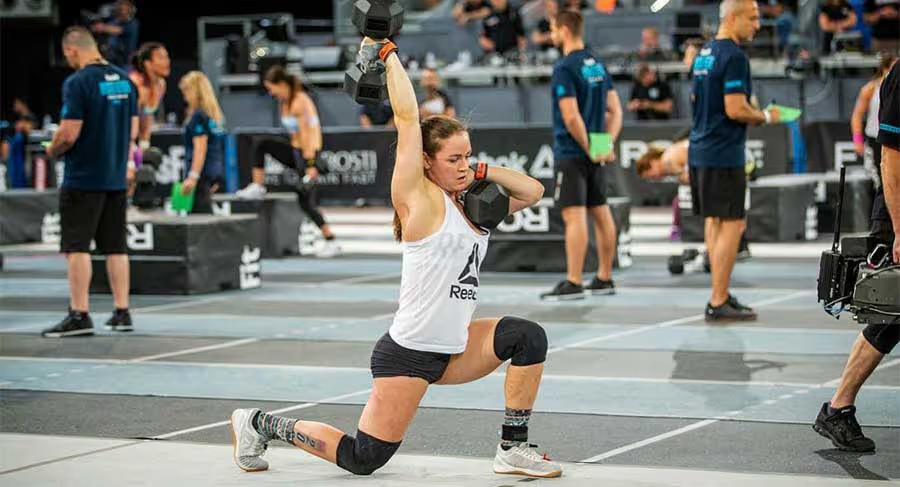
Picture this: You’ve been training Crossfit for some time now, you’ve gotten all the necessary skills down and have been constantly improving.


Picture this: You’ve been training Crossfit for some time now, you’ve gotten all the necessary skills down and have been constantly improving.
The thrill of racing against your training partner, or the best times on your gym’s whiteboard, just isn’t enough anymore.
As your fitness improves you start developing a hunger, or simple curiosity, for something more. That’s when you start thinking:
“Maybe I should compete?”
Probably by now, someone else has mentioned it to you as well: a coach, your box owner, a training partner or friend. Hell even your family has pointed out that you might as well compete if you spend so much time in the gym!

As a company focused on providing the best programming possible to take our client’s athletic abilities and ultimately competitiveness to the next level we can’t help but encourage whoever we work with to take their first step towards competing.
This said, we do recognize not everyone is ready to jump headfirst in that direction.
There are definitely some characteristics we look for in athletes before we give them the heads up, and for certain scenarios we’d even recommend taking a step back and waiting a while before making “their move”.
So what is it that we look at and evaluate to make such considerations? Of course there are some very straightforward aspects related to skills and fitness levels but we also take in account health and psychological factors.
You should compete if…
You are comfortable with performing multiple reps under fatigue of all the skills required for your division Love racing against others and always looking for a challenge. Others doing better than you makes you want to push and work harderYou have adequate time to dedicate to training AND recovery. Stress from non-gym related activities is manageableNo injuries or serious health issues that limit your training
You should NOT compete if…
Missing some skills required in your division or don’t feel safe/comfortable doing them under fatigueNot motivated by the idea of “chasing” someone or being “chased”. You don’t like comparing yourself or your scores to othersLittle time to train especially in the amounts needed for your ideal division. Not getting enough sleep or good nutrition, high levels of stress due to non-gym related factorsYou’ve been dealing with a recurring injury or health issue that limits your training
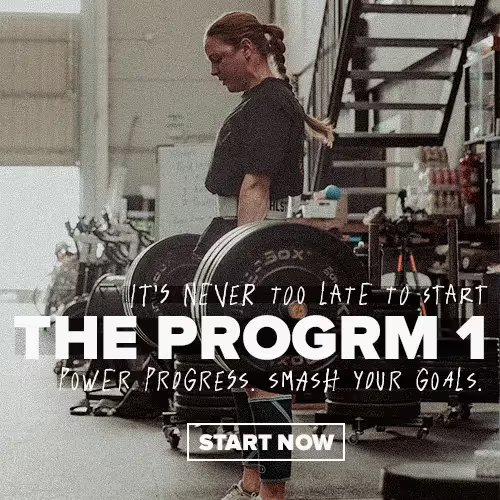
Nowadays there are competitions and competitive divisions for all skill levels. You are not required to be able to walk 20m on your hands or do ring muscle ups to step into an arena.
However it is important you are honest with yourself about where you’re truly at with your skill development to correctly select an adequate division.
Overestimating your abilities and signing up for an advanced division can lead to both disappointment, as you won’t be able to achieve the results you were hoping for, and/or potential injury risk.
During competition it’s easy to shut off “common sense thinking”, leading athletes to attempt movements or rep schemes they’d usually define as risky or dangerous.
Although this scenario can be used to your advantage to help push your own limits, it can translate to a potential injury especially if you’re a rookie or a still relatively inexperienced athlete.
Although competing offers more than just an outlet for one’s desire to race against others, most athletes who sign up for competitions are looking for this type of challenge.
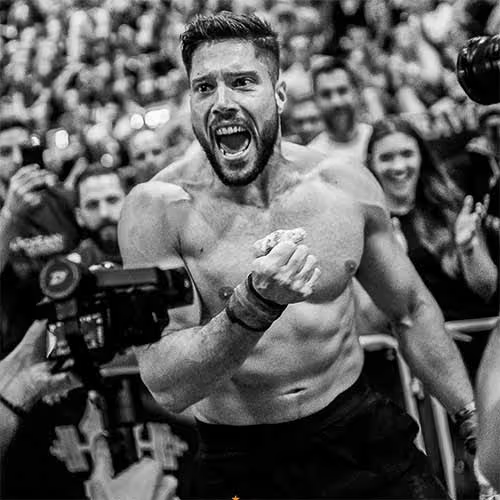
Sportsmanship and uplifting each other is a huge part of Crossfit competitions but when you’re out on the floor it’s you against the clock against all the other athletes.
Yes it’s important to focus on doing your best, but if you’re not someone that finds themselves driven or motivated by strict comparison you probably will have a hard time thriving in competition.
If you want to do well, on the leaderboard or just for your personal goals, you will need to dedicate adequate amounts of time to prepare for a competition.
If you are already following a structured training program you probably have already taken this into account. We encourage you to base your choice of competition and goals based on the amount of time you can actually spend preparing.
It goes without saying that health should always be a determining factor. If you are injured or dealing with any health issues adding the stress of preparing for a competition and partaking in the event can worsen your conditions. Not to mention that you are probably setting yourself up for a let down if you walk out onto the competition floor nursing an injury.
Competing can be an incredible experience.
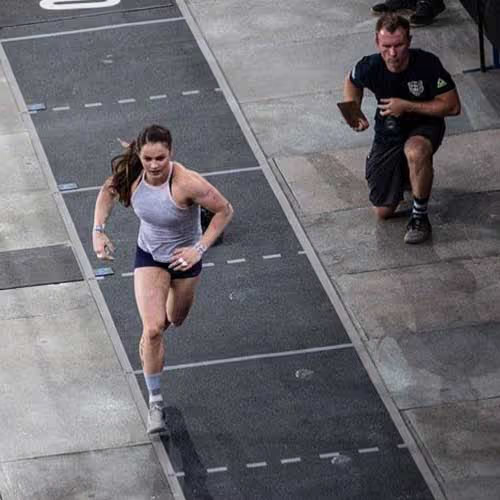
Most of us, just like with our first Crossfit class, will have our first go at it and end up addicted.
And because we think it’s such a wonderful opportunity we want to help YOU make the most out of it.
Before we dive into preparing for a competition we want to address something deeper: the reason behind your desire to compete.
And we ask:
So you want to compete?
The answer to this question is important because it will determine what your whole mindset will be based off when it comes to both training and competing.
Many athletes who don’t have a clear answer may find themselves unsatisfied after every competition, and even worse, have more chances of quickly burning out.
This is why this topic isn’t just for rookies: we believe addressing this core question can aid anyone in improving their overall competitive experience.
Competing will give you a whole new baggage of experiences that you have likely never lived before.
Even if in the past you used to compete in another sport, it’s likely that you will discover new meanings to the word “compete” when stepping onto a Crossfit competition floor.
From the camaraderie of the athletes to the passion of the crowds, Crossfit events bring a lot to the table. This is why no matter the type of athlete you are you can remain certain Crossfit competitions will benefit you in one way or another.
If you still are on the edge about signing up for your first comp let us illustrate some of the best aspects of competing in Crossfit. We hope that you will resonate with them just enough to get you excited about getting your name on the leaderboard.
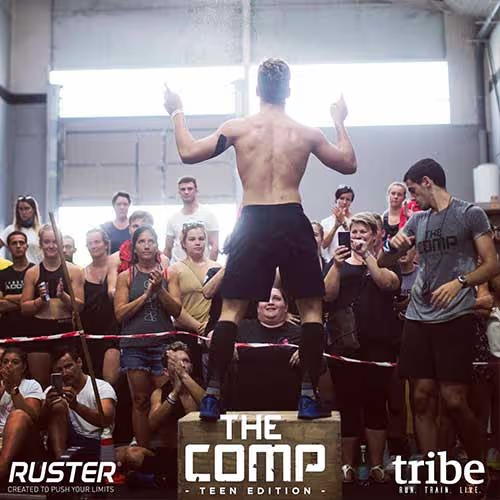
To help guide in finding your why we encourage you to take pen and paper and write out what you are most looking forward to experiencing in your next competition.
If you do have a couple comps under your belt add your favorite memories from those events.
It may be hard at the start to get these thoughts out but as you write them down you’ll realize they soon start flowing more naturally.
Once you feel satisfied with what you’ve written consider these “bullet points” and try to find similarities between each one of them.
If you find a connecting pattern you likely are close to addressing what’s behind your competitive drive.
Here’s an example:
Say the two things you are most excited for are meeting other fellow athletes on the floor, and being able to show those who support you, day in and day out, how your hard work has been paying off.
Your best memory from your last competition was hearing a friend or coach shout your name from the other side of the competition floor.
All three of these “points” share a human component.
This is not an unusual pattern: many of us are attracted by the interactions and bonds that are formed during a competition. It’s the reason we keep signing up event after event, along the way we make new friends who share our passion and create lasting memories with those closest to us.
When you prepare for an upcoming competition with a clear purpose you’ll soon realize the whole process is much more enjoyable.
Not only: on the tough days, when you need that extra motivation to push through your session (or that last set of assault bike sprints) it can become a tool to help make sure you keep giving all you’ve got.
The power of visualization should never be underestimated, thinking about the feeling of fulfillment and satisfaction you will get by achieving what you desire can make the current fatigue and discomfort that much more bearable.
Finally here's a thought we want to leave with you: most people who choose to compete, especially in Crossfit, do it because they have an innate competitive drive.
Nobody is out on the floor to finish second, yet only one athlete will reach that top spot. Winning isn't something that happens overnight: it takes hours of work and dedication. Yet if you rely solely on competitive drive you are very likely to crash and burn (out). That's why knowing what fuels your desire to compete is what's going to keep you in this game the longest.